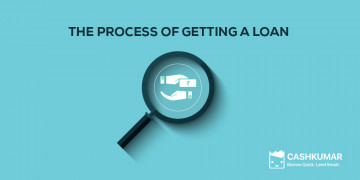Many people tend to be confused and without proper information when it comes to the distinction between personal loans for self-employed professionals and business loans. We too tend to get a lot of queries where people tend to mix both these types even though there is a fine line of distinction between them. There are also similarities in that both are unsecured and are extended by banks/NBFCs after a lot of scrutiny. They can also be given to proprietorship, partnership or limited companies. But the nature of use and the person it is given to differs. A personal loan is given to an individual for his private use which can be anything whereas a business loan is given to the entity for its use (even if it is run by an individual). So you can be a proprietor of a business but for your personal need you have to apply for a personal loan and for a business need you have to apply for a business loan.
There are some other distinctions which banks/NBFCs might consider like the amount of loan in terms of the purpose but that is a individual definition and not generic to the category. So given this let us come to the topic and find out the essential things to note when taking a personal loan as a self-employed professional. There are some critical things which impact a bank or NBFCs decision to give you a loan. While some of them are lenient, others are quite strict but there is no compromise on any of these criteria. Check what these are:
ITR: A lot of self-employed professionals take the income tax process for granted and fail to file proper papers or follow due process. While this might lead to short term gains, it is quite detrimental when you need to request for finance from an institution. All banks/NBFCs are quite strict in requiring ITR (Income Tax Returns) for atleast the past 3 years of people applying for a personal loan. This doesn’t mean the returns in the name of the business especially if you are larger LLP or a private limited company. You have to file returns in your own name for the income you make from the business.
Revenue: Most banks and NBFCs place a lot of emphasis on the revenue that is generated by your business. Revenue or sales in some terms is the money you make by selling the products/services of your business. This is just the gross income you make and does not account for the costs you incur on business. Most banks look for revenue in the vicinity of Rs.50 lakhs per year while extending loans to self-employed professionals but some NBFC’s are willing to consider businesses generating Rs.12-15 lakhs also.
Profits/Income: Just like in the case of a salaried professional, the most critical factor for a bank when extending a loan is your ability to pay back. So just like in the case of a employed professional where his disposable salary (salary minus existing overheads) the main factor for self-employed professionals is the income or profits they make from their business. Some of you might be taking an income from business and other taking the entire profit. In either case, your income from your ITRs will be considered. Again some banks are strict in mandating Rs.5 lakh as your net income while some NBFCs are lenient in allowing even Rs.2 lakhs. In either case again your disposable income is most crucial.
Vintage: It is important if you have a business that there is of some vintage to it which means that you must have been pursuing that business for a while. It gives assurance to a bank/NBFC that the business is reliable, sustainable and trustable. If a business is young, a lender will not have the comfort to be sure that your business will last. So almost all banks/NBFCs will look for a vintage of over 3 years. So you will have to prove in some way, through formal statements, that the business has been in existence for over 3 years.
Kind of business: The kind of business is a factor that most of you might not think about while applying for a loan. But for banks and NBFCs this is also one aspect which might affect their decision to give a loan. When giving out a loan the thing that a lender looks for is stability in the person and his source of income. This is not possible in some businesses which are volatile, while some others are seasonal. This does not inspire confidence in a lender to give out money expecting a payment every month. So most banks might hesitate and decline your loan request.
There you are, the critical factors you must think of as a self-employed professional while applying for a personal loan. And it is common across the country, whether you are in Delhi or Chennai, Mumbai or Bangalore. Unfortunately some of these are not in your control but the ones which are should always be taken care of. So don’t forget to pay taxes and collect your ITRs because this might be the cause of delay or denial of your request for a personal loan.




